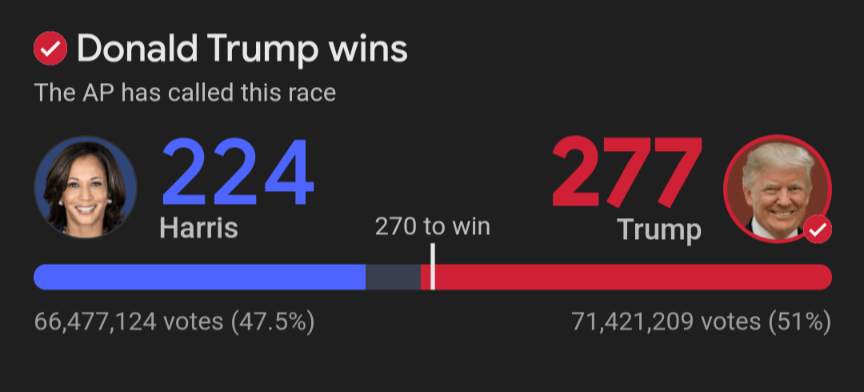
Sunny Hostin from the view prediction that America would not vote for a female black president was right-
In the recent U.S. presidential election, the prediction made months ago by political analysts, including Sunny from The View, has largely proven accurate: America may not be ready to embrace a Black female president. Vice President Kamala Harris’s historic bid for the presidency faced formidable obstacles that extended beyond typical partisan divides, revealing deeper issues within the American electorate regarding race and gender.
The outcome of the election demonstrated mixed signals from various demographic groups. Despite a campaign season marked by intense rhetoric and divisive commentary, significant numbers of Latino voters turned out for Donald Trump, undeterred by the waves of hate speech that some might have expected to sway their support. This voting pattern speaks to the multifaceted views within the Latino community and suggests that factors beyond racial and ethnic solidarity influence their political choices.
Moreover, there was a noticeable gap in support from men who may have otherwise been expected to stand by Harris. The anticipated “gender gap” was surprisingly narrow, as many men chose not to cast votes in support of a female candidate—a move that some political commentators believe reflects underlying discomfort or bias toward women in leadership.
The response from Black voters was also telling. While Harris, a woman of Black and South Asian descent, was expected to garner enthusiastic support from Black voters, her share of this demographic was lower than historical norms for Democratic candidates. Analysts suggest that this could reflect a complex set of issues, including doubts about her policy positions, the influence of misinformation, or simply longstanding concerns about the barriers that still exist for women of color in high-stakes leadership roles.
Internationally, this election result may signal to the world that America continues to struggle with issues of racial equality and gender equity. The election was expected to be a bellwether for progress in the representation of minority groups and women in politics, yet it ultimately highlighted some of the limits of that progress.
Looking forward, many Americans are now focused on the economic direction Trump’s administration will take. His economic policies, which have been called “devastating” by numerous economists, aim to revitalize manufacturing but could potentially lead to challenges in areas like trade relations, federal debt, and healthcare. While supporters hope for a prosperous future, there is concern among experts and everyday citizens alike about the potential for increased economic instability.
As America reflects on this election, it faces a challenging journey ahead. The results underscore the work still needed to achieve racial and gender equity in its political landscape. Meanwhile, the hope remains that the country can work together to address its deep-seated issues, while economic experts continue to closely monitor the effects of Trump’s policies on the national and global economy.















